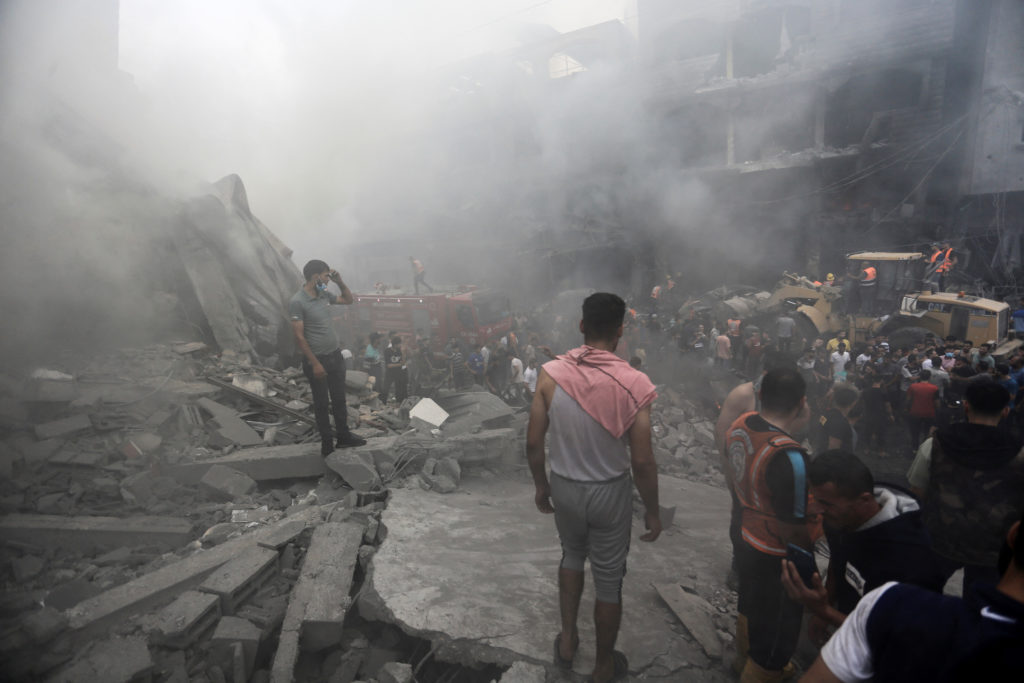The UK, France, and Germany have called on Iran not to escalate tensions and to pursue negotiations after UN sanctions were reinstated on Saturday.
The three countries said they had no choice but to bring back the sweeping measures against Tehran as a last resort over its continued nuclear escalation and lack of cooperation.
We urge Iran to refrain from any escalatory action, they said in a joint statement, adding: The reimposition of UN sanctions is not the end of diplomacy.
Iran's President Masoud Pezeshkian insisted last week that the country had no intention of developing nuclear weapons, and condemned the re-imposition of international sanctions as unfair, unjust, and illegal.
The United Nations' sweeping economic and military sanctions were reimposed on Iran at 00:00 GMT on Saturday - a decade after they were lifted in a landmark international deal over its nuclear programme.
Iran stepped up banned nuclear activity after the US quit the deal in 2016. Donald Trump withdrew from the Joint Comprehensive Plan of Action (JCPOA), criticizing it as flawed during his presidency.
Talks between the three countries and Iran during the UN General Assembly earlier this week failed to produce a deal that would have delayed the sanctions.
In a joint statement, the foreign ministers of the three European countries pointed out Iran's failure to address concerns regarding its nuclear commitments, citing its refusal to cooperate with the UN nuclear watchdog, the IAEA.
Despite resuming IAEA inspections, Iran warned that renewed sanctions jeopardize the path forward. Additionally, President Pezeshkian indicated that assurances were necessary for Iran to normalize its nuclear enrichment programme, while pushing back against US demands to hand over its enriched uranium stockpile.
In recent developments, Iran announced the recall of its ambassadors to Britain, France, and Germany for consultations as tensions continue to escalate.


















